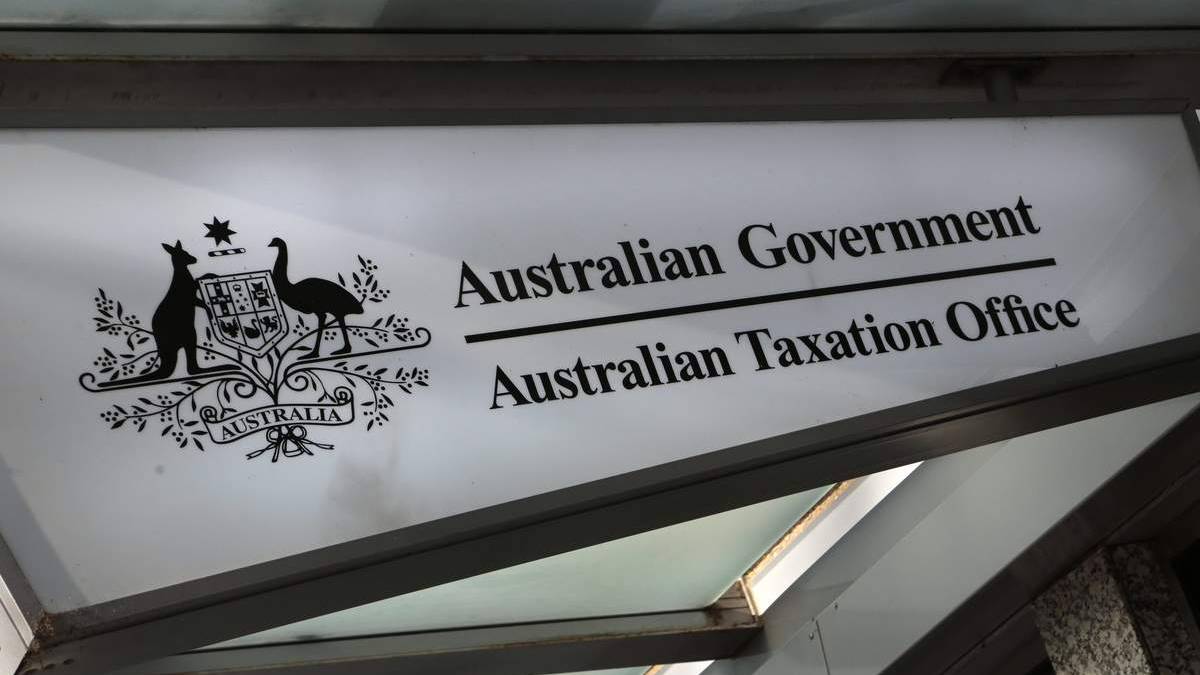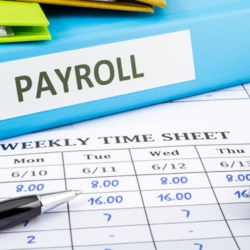-
31May2018
Tax Planning season now in full swing

All Australian taxpayers are legally allowed to arrange their affairs in a manner which minimises their tax liabilities.
The end of the financial year (30 June) end is rapidly approaching, which means now is the time to review your finances and discuss any recommended strategies that could be implemented to provide you with the best results.
Tax Planning can be useful if your profit or circumstances have changed and allows us to implement new strategies if needed before 30 June 2018.
Tax planning can be as simple as an individual taxpayer checking that enough HECS has been withheld from their salaries. Or it can involve a more complex assessment for businesses.
If you are a regular tax planning client, your consultant may have already been in touch. Otherwise, they will soon to arrange a suitable time for you to attend a meeting to go through your accounts.
If this is something that you have not had done in the past and feel you need a review before year end, we encourage you to contact our office on (07) 3510 1500 or email to see if tax planning can help you or your business.
Read more for further information on potential tax saving strategies and our tax planning checklist.
-
15May2018
Cryptocurrency tax tracking upped with new register

So you think your Cryptocurrency transactions can’t be tracked?
New rules now require cryptocurrency exchanges to sign up to a new Digital Currency Register. All transactions exceeding $10,000 will need to be reported to AUSTRAC in line with existing rules for bank transfers and cash transactions. Taxpayers will need to show where the money came from and also that they have followed the ATO’s rules. Ignorance of the rules is not considered an adequate defence for failing to pay the appropriate tax. There are currently strong warnings from the ATO for taxpayers to review cryptocurrency guidance ahead of tax time 2018. So, if you’re unsure of what your cryptocurrency transactions mean tax-wise make sure you give us a call.
An ATO spokesperson told Accountants Daily earlier this year, “Where people attempt to deliberately avoid these obligations we will take strong action, in particular using a range of existing powers that are designed to address unexplained wealth and conspicuous consumption that may arise through profits derived from cryptocurrency investment,” -
20Apr2018
ATO Alert – ATO data matching – motor vehicles

The ATO will acquire information for the 2016-17, 2017-18 and 2018-19 financial years on vehicles that have been transferred or newly registered where the purchase price or market value is equal to or greater than $10,000. Data will be acquired from the eight state and territory motor vehicle registry authorities.
It is estimated that records of 1.5 million individuals in each year will be electronically matched with ATO data holdings to identify non-compliance with obligations under tax and superannuation laws.
The Gazette notice for the data matching program (Gazette C2018G00277, 13 April 2018) notes the objectives include:
-
13Apr2018
Business Payroll Reporting: Beware Being Fooled by New Single Touch System
April 1, 2018, was the key date to analyse whether your business needs to comply with the new single touch business payroll reporting (STP) requirements.

Single Touch Payroll is a reporting change for employers with 20 or more employees which began from 1 July 2018.
It involves reporting to the ATO salaries and wages, pay as you go (PAYG) withholding, and superannuation information from your payroll solution each time you pay your employees. Most employers report this information either quarterly or monthly. Businesses need to count the employees on your payroll as of 1 April 2018 to see if you need to get ready for Single Touch Payroll.
Single Touch Payroll will be expanded to include employers with 19 or fewer employees from 1 July 2019. This is subject to legislation being passed in parliament.
Need Help With Your Business Payroll Reporting?
Email Us – Call us on (07) 3510 1500
Are You ‘Substantial’?
Single touch business payroll reporting (STP) is mandatory for ‘substantial employers‘ (those with 20 or more employees) from 1 July 2018. To find out if you are a substantial employer, count the employees on your payroll on 1 April 2018. You do not need to send us your headcount information. However, you may want to keep a copy for your records.
If you are part of a company group, you must include the total number of employees employed by all member companies of the wholly-owned group.
Business Payroll Reporting: Making The Count
To work out if you have to report through Single Touch Payroll from 1 July 2018, all you need to do is count the number of employees on your payroll on 1 April. If you have 20 or more employees, you’ll need to get ready for STP this year.
You can do the headcount after 1 April, but the count must reflect the number of employees who were on your payroll on 1 April. You do not need to send the headcount to the ATO, but you should keep a copy of the count for your records.
Busy times, like long weekends, seasonal work or special events often mean employers need to hire additional workers to keep up with the workload and temporarily increase their headcount to 20 or more employees on 1 April. In respect of this, you will be exempt from reporting under STP for the 2018 financial year if you:
– had fewer than 20 employees for at least 10 out of the preceding 12 months
– reasonably expect to have fewer than 20 employees for at least 10 out of the immediately following 12 months.You do not need to inform the ATO if you use this exemption.
How to count your employees?
Include in headcount:
- full-time employees
- part-time employees
- casual employees and seasonal workers who are on your payroll on 1 April and worked any time during March. There are exemptions to counting seasonal workers who were employed for a short time only, as per the exception above
- employees based overseas
- any employee absent or on leave (paid or unpaid).
Do not include in headcount:
- any employees who ceased work before 1 April
- casual employees who did not work in March
- independent contractors
- staff provided by a third-party labour-hire organisation
- company directors
- officeholders
- religious practitioners.
Directors, officeholders and religious practitioners are not included in the headcount. They are not considered employees within the common law meaning of the term.
However, when you start reporting through STP you will need to report the payment information of these groups of people. This is because the payments are subject to withholding and are currently reported in the Individual non-business payment summary.
Get ready for STP – A Checklist
- Speak to your accountant and payroll software provider
- Find out how your payroll software provider will offer Single Touch Payroll (STP) reporting – this may be through an update to your existing software, or an additional service.
- check if they have a deferred start date for your product
- Find out what support they will offer to their clients to transition to STP
- Subscribe to STP communications – this may be email, newsletter or web updates from your accountant, software provider or the ATO
The following is a checklist which may help as a resource:
Single Touch Payroll get ready checklist (PDF 194KB)
Opportunity to review your business processes
The introduction of Single Touch Payroll is a good time to make sure everyone in your business is up-to-date with reporting requirements. If you have payroll staff, make sure they know about Single Touch Payroll.
This is also a good chance to make sure you’re paying your employees correctly, to check if you’re calculating super entitlements properly, and catch up on addressing overpayments. While you’re at it, why not make sure your employee information is accurate, including names, addresses, date-of-birth records?
Apply for more time if you need it
If your software will be ready, but you won’t, you will need to apply to the ATO for a deferred start date. If your payroll software provider has a deferred start date, and you still need more time, you will need to apply for your deferral. Make sure you contact your accountant and ensure you follow the ATO guidelines and provide all the evidence required. The ATO only provide deferrals for extenuating circumstances.
These circumstances may include situations such as:
- having entered administration or liquidation
- having been impacted by a natural disaster
- being unable to get ready by your software provider’s deferred start date
- you are transitioning to a new STP-enabled solution
- you are using a customised payroll solution and you need time to configure and test your updated product
- having complex payroll arrangements and need additional time to transition to STP
- are affected by other circumstances which are out of your control.
Business Payroll Reporting: Software Provider Deferrals
Some payroll software providers have told us they will not have their payroll solution ready to offer STP to their clients by 1 July 2018. They are applying for additional time to commence STP reporting for some or all of their products. If granted, the deferral will apply to exist customers of the specific software version. These customers will need to start reporting through STP on or before the deferred date.
Your payroll software provider will let you know if and when deferral is granted for your software product. If you are unable to get ready by then, you will need to apply for your deferral in addition to this.
Exemptions
The ATO will consider granting an exemption for reporting a particular employee or group of employees through Single Touch Payroll (STP). This includes an employee of a department, agency or entity of a foreign government not resident in Australia, such as a diplomat. You can also seek an exemption for reporting an employee who is not recorded in an Australian payroll system.
If you are granted an exemption for an employee or group of employees, you may still need to report your other employees’ information through STP. You or your registered agent can submit a request using the Business Portal, Tax Agent Portal or BAS Agent Portal:
Need Help With Business Payroll Reporting?
Business Payroll Reporting: First Year Support
The ATO has stated that it will help and support businesses through the first year of STP reporting. If mistakes are made, you will be able to make corrections and penalties will generally not apply.
If you wish to discuss whether STP will apply to your business, contact us at or 07 3510 1500 or through Messenger below.


-
13Apr2018
Procrastinating About Overdue Tax Returns?
Let Us Help Get You Up To Date

When you have been involved in a business that completes thousands of tax returns each year, for more than 25 years, you’ve heard just about every excuse why people delay or avoid lodging their returns.
Regardless of the excuse you fall back on, the obligation to lodge a return does not go away via avoidance. Delaying returns may end up getting you in even more trouble with the ATO.
But for every excuse, there is an answer. Consider the following list of commonly used delay justifications and the help that can be provided:
-
13Apr2018
Client of the Quarter
At Affinitas Accounting we like to share and celebrate our client’s success.
Congratulations to The Brisbane Plumbers for being our ‘Client of the Quarter’.

For a business that started less then a year ago Courtney & Joseph have done extremely well in growing their client base and brand name around Brisbane.
-
09Mar2018
Foreign Residents Face Tax Bill on Sale of Aussie Home

Foreign residents (also known as non tax residents) of Australia will soon have to pay tax if they sell their own homes at a profit.
This change, announced in the 2017-18 Federal Budget, potentially affects all property owners from 9 May, 2017 in two broad categories.
The first is those who sign a purchase contract for a property after 7.30pm on 9 May, 2017, and sell that property as a non tax resident of Australia. These people will need to calculate whether a capital gain has been made and pay tax accordingly. This will apply regardless of your tax residency status when you bought the property.
-
05Mar2018
Top Tips To Get Your Medical Career Off To The Best Start
After many years of hard study, starting your medical career can be a rewarding time – from both a work and financial perspective.
The early months and years will be busy – getting to know different hospitals and the new rotations each term. Long term financial planning may not be your immediate priority, but there are still a few things you should spend some time on in this early part of your career.

Superannuation
Super is often overlooked when you’re starting in the workforce and usually we sign up to the one recommended by our employer. There may be nothing wrong with the fund offered by your employer, but you should get at least a basic understanding of how it works – after all, it’s your money!
Things to consider are the return the super fund is making, what fees they are charging and what, if any, insurances are housed within the fund – and whether you could be paying too much for these insurances – in some cases up to 40% too much. Your super investment strategy needs to fit your long term goals and also what is known as your risk profile. Knowing your risk profile helps guide you towards the investments that might best suit you.
Tax Deductions
Keeping yourself registered, insured and up to date isn’t cheap. There’s no getting out of paying these expenses but, on the plus side, most of those costs are tax deductible. Those annual registration fees to APRHA for example are deductible, as is rofessional indemnity insurance, subscriptions to medical journals, training courses and text books.
Make sure you keep receipts for all expenses that relate to your work and then you can discuss with a tax professional whether or not they can be claimed in your annual tax return. Remember, deductions don’t work on a straight dollar for dollar basis – but they should get you some extra money back to help ease the financial pain.
Locum work
We often see professionals do some locum work on the side, for example after hours doctor services, on top of their main wages job. Two misconceptions relating to this work can be:
1) It’s all extra spending money.
Well this is partly true, but it’s important to factor in that tax is usually not withheld on these payments, it will be payable in your year end tax return.
2) It’s not worth it – you just end up working for the tax man.
The extra hours that you work will mean extra tax to pay. But after the tax man takes his cut, you will still be left better off than before. It’s up to you to decide if what you get in the hand from this extra work is worth the extra hours.
If you are looking at starting a second job, even if that job will be withholding tax from payments, it is always a good idea to have a look at how the second job will effect your overall tax position. At the end of the year your two incomes are added together with any other assessable income, deductions taken away and a final taxable income calculated.
The tax you owe is then calculated based on this taxable income and this figure can include any amounts you owe for HECS, Medicare Levies and Medicare Surcharge. This final tax figure you owe is then compared with the tax that has been withheld on your behalf during the year – and that is how your tax bill or tax refund is calculated.
Surplus Cash
After working for a while you may find surplus cash building up in your bank account. After all those years of being a student, most of you will want to set yourselves up with a car and probably shout themselves a decent holiday. But what about other financial priorities?
Should you pay off your HECS debt? Invest it in shares/property? Should I borrow some money to invest and where will I get the best deal? Put extra into super? It is important to get advice on the financial options that best suit you and everyone is different. There is no one solution that suits everyone.
You probably won’t have a 100% financial blueprint for the rest of your life at this point in your career. But you should use these early months and years to gather a good team of advisers around you – ones that can help you now with your immediate priorities and also be there for you in the future.
At Affinitas, we understand the medical industry and have the tax, insurance, investment and lending advisers that you can call on when you need them. Contact us for a chat on 07 3510 1500, or even send us a message on Messenger.


-
09Feb2018
Five Tips To Keep Your Medical Business Healthy
Medical professionals study long and hard to establish their careers and the best way to secure a long-term vision to start your own medical business.

Often, medical professionals choose their path to make a difference – to the lives of their patients, their families, and their own futures.
But whether you are a GP working with patients in a suburban practice or a specialist with consulting rooms and an operating list, it always pays to remember that a medical practice is a small business.
Successful medical practitioners realise that to achieve their goals and be properly rewarded after the years of hard work and study, they need to get both the medicine and business working together towards a common outcome.
To do this, you need to get the right advice and gather a good team around you – preferably as early as possible in your career. And during your hospital training years can be an ideal time to start.
The following are five tips/traits that are commonly found in successful medical practices:
1. Identify Your Greatest Asset and Get It Insured
The most valuable asset in any medical practice is the medical practitioner themselves. A medical practitioner has the ability to earn many millions of dollars in fees over a working life – so getting this insured should be one of your first priorities. Source advice on putting quality policies in place and get it done early when you are young and fit. Beware of just insuring for the now, make sure you insure with an eye on your future needs as a practitioner and a breadwinner in your family.
2. Get Your Business Set Up Right
There is no off-the-shelf solution that suits the set-up needs of every medical professional business. Each medical practitioner has his/her own existing assets, debts, family situation and future needs. Sit down with a professional accountant early in your career and start discussing these options well before you make a decision to go into private practice.
3. Outsource Non Core Work
You should understand how your business works, but do not try to be the medical practitioner, practice manager, financial adviser and business accountant. Find good people to fill these roles, pay them appropriately for their skills and experience – then concentrate on your own area of expertise.
4. Run Your Medical Business – Don’t Let It Run You
As a medical professional, your own health and personal relationships can suffer from the strain of stress and overwork – just like your patients. Be ruthless with your time management and make sure you set aside slots for personal and family time. Getting point number 2 correct (Outsourcing Non Core Work) can be a big help in this area.
5. Tax Savings Are Important, But Only One Part Of Wealth Creation
Many medical professionals are high income earners and that usually means a large tax bill to pay each year. This tax bill can be taken out as part of your salary when you are working at a hospital, or paid via your business structures when you are in private practice. Your business and investment planning priorities should always be mindful of being tax effective, but tax is just one element in the overall picture. Focusing only on maximising tax deductions can reduce your tax bill, but it may not produce the best overall wealth accumulation outcome. Make sure you have a financial adviser who considers BOTH your tax and investment strategies.
At Affinitas, we have more than 25 years experience advising medical professionals at all stages of their careers. For an appointment, call 07 3510 1500, email or reach out to us on Messenger.


-
09Feb2018
Truckies – 6 Tips for Keeping Yourself and Your Business Healthy

Truck Drivers – both long haul or short haul – are an essential part of the lifeblood of any western nation.
Whether it be our food, fuel, building materials, furniture, motor vehicles or any other general parcel – they all need to be trucked around our country and within our cities.
Trucking is not for the faint-hearted, with professional drivers often spending up to 300 days per year on the road. And when things go wrong and bad accidents occur it is always a tragedy for all concerned.
Our farms and other small business depend on the trucking industry. And most truck drivers, themselves, are small business owners who are trying to earn a living and feed, house and clothe their family.
As accountants and financial advisers, we have spent more than 25 years helping family owned trucking businesses. The following are some helpful suggestions gleaned from more than 25 years of dealing with these hard working small business owners.
